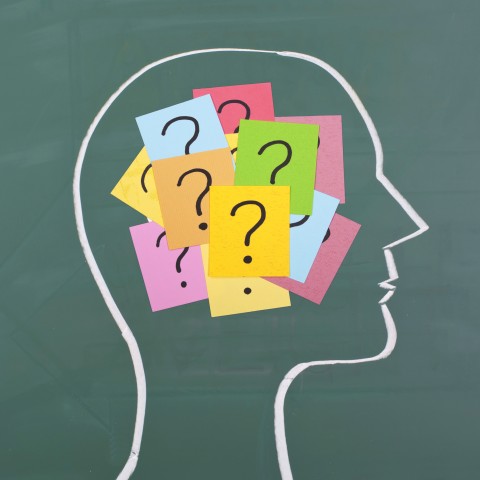
Learning a new language can be intimidating. When it comes to a less-popular language like Greek, spoken by only 13.8 million people worldwide, many potential learners wonder “Is it hard to learn Greek?”
The good news is that Greek is a branch of the Indo-European languages. This means that it shares many common characteristics with Spanish, English, and Italian.
The bad news is… Wait a minute! Is there really any bad news?
If you’re reading this article, then you should be fluent in English, regardless of your mother tongue. There it is: you’re already familiar with the philosophy of the most popular Indo-European language. This is a huge asset that will play an important role during your Greek-learning journey.
With GreekPod101.com, you can start learning Greek in a fast and easy way. From our vast experience with students from all over the world, we’ve gathered in this article the most common difficulties that they face while learning Greek, plus solutions and tips on how to overcome them.
After reading this blog post, you’ll be able to say, out loud and with confidence: “Greek is certainly NOT hard to learn!”
 Table of Contents
Table of Contents
- You Already Know Some Greek
- The Easiest & Hardest Parts of the Greek Language
- I Want to Learn Greek. Where Should I Start?
- Useful Advice for Novice Greek-Learners
- Why is GreekPod101.com Great for Learning Greek?
- Conclusion
1. You Already Know Some Greek
Yes, you do!
Did you know that five percent of the words included in a typical English dictionary have Greek origins?
Take a look at some examples below.
| Greek | Romanization | English Equivalent |
| κόσμος | kósmos | “cosmos” |
| ακροβάτης | akrovátis | “acrobat” |
| ιστορία | istoría | “history” |
| ανώνυμος | anónimos | “anonymous” |
| γαλαξίας | galaxías | “galaxy” |
| βακτήριο | vaktírio | “bacterium” |
| ρινόκερος | rinókeros | “rhinoceros” |
| τεχνολογία | tehnoloyía | “technology” |
| σαρκασμός | sarkazmós | “sarcasm” |
| δημοκρατία | dimokratía | “democracy” |
| Ευρώπη | Evrópi | “Europe” |
| μουσική | musikí | “music” |
| φοβία | fovía | “phobia” |
| πανικός | panikós | “panic” |
| πλανήτης | planítis | “planet” |
And these are only some of them.
Innovation was prominent in ancient Greek culture. Therefore, many discoveries and terms, especially in the fields of mathematics, science, and medicine, originated from Greek.
This magical aspect of the Greek language was once highlighted by Mr. Zolotas, a Greek politician in the 1950s who created a whole speech in English using only Greek words.
2. The Easiest & Hardest Parts of the Greek Language
Why is learning Greek so hard for some students? And what things make it pretty easy? We’ll outline both sides of the Greek language in the following sections!
2.1 Easiest Parts
We could say that there are more easy parts than there are hard parts, for sure. Greek is, overall, not a hard language to learn, remember?

Here are the easiest aspects of Greek language learning, so you can see for yourself:
- Alphabet
Even the word “alphabet” itself stems from the Greek word αλφάβητο (alphávito). The Greek alphabet consists of twenty-four letters, ordered from Α/α (“alpha”) to Ω/ω (“omega”), and it’s pretty similar to the alphabets of other European languages.
Tempted to start learning the Greek alphabet today? Watch our relevant YouTube video to get a glimpse, or begin learning in depth with our Greek Alphabet Made Easy lesson.
- Word Order
The basic sentence structure in Greek follows the SVO pattern (Subject-Verb-Object), like the English language. In addition, adjectives are placed before nouns, and adverbs after verbs.
Here are some examples of simple Greek sentences:
| Greek: Εγώ παίζω κιθάρα. Romanization: Egó pézo kithára. Translation: “I play the guitar.” |
| Subject | Verb | Object |
| Εγώ | παίζω | κιθάρα |
| Greek: Ο μαύρος σκύλος κυνηγάει την άσπρη γάτα. Romanization: O mávros skílos kinigái tin áspri gáta. Translation: “The black dog chases the white cat.” |
| Subject | Verb | Object |
| Ο μαύρος σκύλος | κυνηγάει | την άσπρη γάτα. |
If you want to learn all the details about Greek word order, read our relevant blog post.
- Pronunciation
Phonetically, Greek is very similar to Spanish, Portuguese, and English. There are five basic vowels—i, u, e, o, a—which are typically included in the syllables. There’s also a stress mark, which can be placed only over vowels, indicating an accented syllable.
Greek also features digraphs (two letters combined, making a distinct sound) and diphthongs (two vowels combined into one syllable), which appear to be tricky for young learners. However, once you learn them and familiarize yourself with the language, these will be a piece of cake.
2.2 Hardest Parts
Well, even the moon has a dark side. Just embrace the challenge!

Here are the main reasons people find the Greek language hard to learn:
- Spelling
We’re not going to lie: Greek spelling can push you to your limits. But is this a reason to be disappointed?
Even native Greek-speakers make spelling mistakes all the time. When you get started with Greek, focus on comprehension and practical examples. Will you make spelling mistakes? Sure. Will you get better and better with practice? Absolutely!
We strongly recommend reading books, articles, and blog posts in Greek. You can even add Greek subtitles to your favorite movies! By doing so, you’ll familiarize yourself with Greek spelling in no time.
- Verb conjugation
Verbs in Greek conjugate according to the subject and the number of subjects in a sentence, the tense, the voice (active and passive voice), and the mood. Therefore, Greek verbs can be found in many forms, which indicate the aforementioned properties. And this can be hard. We know.
However, once you dig into the grammar rules, you’ll be able to categorize verbs according to their ending, and you’ll quickly become a master of Greek verb conjugation!
- Noun and adjective declension
Last, but not least, nouns, pronouns, and adjectives get inflected, too. They showcase different forms according to number, gender, and case. They are also often accompanied by articles, which should agree with the noun.
This is another aspect that many students find challenging. Nevertheless, this is something that you can overcome easily with proper practice.
3. I Want to Learn Greek. Where Should I Start?

At GreekPod101.com, we’ve mastered self-teaching as a lifelong learning method. Here are our pearls of wisdom for getting started with Greek language learning:
- Step 1: Start with simple everyday life sentences.
- Step 2: Try to enhance those sentences with a wider range of vocabulary. Keeping a vocabulary notebook will definitely help.
- Step 3: Continue with grammar. Focus on the basics of verb, noun, and adjective inflection.
- Step 4: Enhance your listening skills by watching Greek movies and series.
- Step 5: Start reading children’s books in Greek. They include very simple sentences and they can really help novice learners.
- Step 6: Now that you have an understanding of the Greek language, familiarize yourself with syntax and word order. Study different cases, such as subordinate sentences, conditionals, and so on.
4. Useful Advice for Novice Greek-Learners
1. Don’t give up: With consistent studying, you can overcome the difficult parts.
2. Do practice whenever you are given a chance: Visiting Greece? Or even a Greek restaurant abroad? Don’t be shy! Try ordering and chatting in Greek.
3. Don’t be afraid to make mistakes: It’s a learning experience. Perceive every mistake as an opportunity to learn.
4. Do try to find Greek communities near you: There’s nothing better than practicing with native speakers. Plus, we bet that you’ll make some new friends!
5. Do plan a trip to Greece: Okay, practicing your Greek might not be your number-one reason to visit Greece, but approach this as a unique opportunity to enjoy crystal-clear beaches, taste delicious food and beverages, and blend in.
5. Why is GreekPod101.com Great for Learning Greek?

A famous Greek saying goes like this:
Greek: Αν δεν παινέψουμε το σπίτι μας, θα πέσει να μας πλακώσει.
Romanization: An den penépsume to spíti mas, tha pési na mas plakósi.
Translation: “If we don’t praise our home, it will collapse over our heads.”
You saw this coming, didn’t you?
“I bet they’ll promote their website at the end of this article!” you whispered.
However, we assure you: This is not a promotion; it’s encouragement to invest in yourself.
You can create a free lifetime account on GreekPod101.com and enjoy tons of free video, audio, and PDF lessons, as well as many other benefits.
So, why is GreekPod101.com great for learning Greek?
- It gets you to speak Greek from day one.
- It focuses on practical examples, rather than strict grammar rules.
- It includes an assessment test to assign you to the most appropriate level and learning path.
- It allows you to create your own vocabulary lists.
- It lets you refresh your knowledge easily and quickly through flashcards.
- It offers you a wide range of totally free lessons focused on grammar, vocabulary, and listening, categorized by knowledge level.
- MyTeacher Service: You can create a premium account in order to get access to a personal teacher. This is a unique opportunity to get in touch with an experienced native speaker, who will help you through your learning process.
6. Conclusion
We’d love to hear from you!
Feel free to share your experience with the Greek language so far in the comments below.
- Which aspects do you find intriguing?
- Which was the easiest part of learning Greek?
- What aspect troubles you the most?
Let us know in the comments!
Start learning Greek today in a consistent and organized manner by creating a free lifetime account on GreekPod101.com. Tons of free vocabulary lists, YouTube videos, and grammar tips are waiting for you.










